|
How much of your hopelessness and despair are tied to urgency, the feeling that something has to happen right now and if it doesn’t happen right now then it will never happen or can never happen?
What else becomes available or possible when we back away from urgency as our default temporality? What are the practices in your life that support you in slowing down and connecting to deep time beyond this moment, this year, this lifetime? There are times when urgency is necessary—in the case of imminent physical harm, in the wake of natural disasters, in the face of ongoing war and the devastation of life and livability, for example. And still: I think about this quote from @adriennemareebrown every day: “There is such urgency in the multitude of crises we face, it can make it hard to remember that in fact it is urgency thinking (urgent constant unsustainable growth) that got us to this point, and that our potential success lies in doing deep, slow, intentional work.” I believe this as deeply as I believe anything. While there are times when urgency is necessary, I am convinced that when we live in a constant state of urgency in all parts of our lives, we are not only creating more crises, but we are also sowing more hopelessness and despair. I turn again and again to practices that cultivate temporalities other than urgency—the deep cyclic time of astrology, the quiet stillness of sitting with stones, the glacial intentionality of dancing butoh, the steadiness and ease in asana practices, moving at the pace of my own body when I choose to walk rather than drive somewhere, and more. I hope you also have practices for cultivating possibilities other than urgency.
0 Comments
Tomorrow the Sun crosses the celestial equator and enters the sign of Aries, marking the vernal equinox and the start of spring in the northern hemisphere.
The Aries ingress chart can be really useful in mundane astrology for describing the qualities of the year ahead, and setting the chart for the capital of a specific country makes those planetary configurations relevant for that particular part of the world. When set for Washington, DC, Scorpio is on the Ascendant—here representing the U.S.—ruled by Mars closely conjunct the IC in Aquarius. This may describe domestic conflict, unrest, or even violence, perhaps related to lands and territories, our roots and histories, or perhaps the founding ideologies of the nation. This makes me think of the Land Back movement and the reclamation of Indigenous lands, for example, but also the ongoing contestation of American history and the ways politicians are already denying the colonial and oppressive roots of the United States in both Indigenous genocide and hundreds of years of slavery. For what it’s worth, the last time Mars ruled the Ascendant of the Aries ingress in the U.S. was in 2020—another presidential election year—as well as the assault on the capital on 6 January 2021, which doesn’t mean we will see the exact same events repeat, but it does offer a sense of the quality of time we are moving into. The Moon in Leo is in a tight opposition with Pluto in Aquarius, which looks to me like the people or the body politic rising up to challenge deeply entrenched consolidations of power, especially in terms of issues of bodily autonomy. The Moon rules the 9th House, so it’s possible that such challenges will also concern education and religion and be worked out in the courts. Education, religion, and judicial branches of governance are all associations of the 9th House. I wonder if we will be seeing the courts decide cases regarding the banning of books or curricula—like critical race theory, for example—which have been fomenting in the U.S. over the last few years. The 10th House—which can represent the political party that currently holds executive power—is ruled by the Sun, exalted in Aries in the 6th House. The Sun’s exaltation here looks promising for the party in power, and its sympathetic aspects to the Moon and Pluto could indicate some kind of benefit from what may be civil unrest. I can only hope that the Sun’s placement in the 6th House indicates greater concern and action for those who are marginalized and subordinated within oppressive systems and institutions. Jupiter—the ruler of the 2nd House—is closely conjunct the Descendant, perhaps indicating generous financial aid to foreign powers. The 7th House itself is ruled by Venus—exalted in Pisces and in its own bounds—which could suggest some strength or improvement in international relations. However, Venus is applying to a conjunction with Saturn—the ruler of the 4th House, which can describe political parties opposing the one in power. Venus—the ruler of the 7th House—bonifying the ruler of the 4th could indicate foreign aid to the opposing political parties. It would not be the first time that foreign powers contributed support to a political party during an election year. No hard predictions here, just observations and themes to observe over the year ahead. “The past … is filled with repeating cycles of strength and weakness, wisdom and stupidity, empire and ashes. To study history is to study humanity. And to try to foretell the future without studying history is like trying to learn to read without bothering to learn the alphabet.”
“How many combinations of unintended consequences and human reactions to them does it take to detour us into a future that seems to defy any obvious trend? Not many. That’s why predicting the future accurately is so difficult.” “It’s also true that where we stand determines what we’re able to see.” “No matter how hard we try to foresee the future, there are always these surprises. The only safe prediction is that there always will be.” “So why try to predict the future at all if it’s so difficult, so nearly impossible? Because making predictions is one way to give warning when we see ourselves drifting in dangerous directions. Because prediction is a useful way of pointing out safer, wiser courses. Because, most of all, our tomorrow is the child of our today. Through thought and deed, we exert a great deal of influence over this child, even though we can’t control it absolutely. Best to think about it, though. Best to try to shape it into something good. Best to do that for any child.” -Octavia E. Butler, “A Few Rules for Predicting the Future,” Essence Magazine (May 2000): 165-166. Butler was writing about predicting the future as a science fiction author, but I take these insights seriously as an astrologer and tarot reader who spends much of my days casting my gaze toward the future. I share these words from Octavia E. Butler with all of us who are trying to imagine worlds to comes—including those of us engaged in divinatory practices. Your purpose is more than your work or even your career.
Audre Lorde wrote, “I am who I am doing what I came to do.” Who are you—and what did you come here to do? I spend a lot of time talking about life’s purpose through the framework with astrology, in conversation with so many brilliant people doing so many remarkable things in the world. And often in these conversations there is a subtle or sometimes not-so-subtle tendency to immediately try to relate the idea of purpose back to the career or work. And for some people, their career or work may be integral to their life’s purpose. And I certainly hope that we all find ways to spend our days that feel meaningful and satisfying and yes, even purposeful, including in the work that we do. And also: Your purpose might be to love, deeply and passionately investing yourself in the well-being of others and yourself. Your purpose might be to grieve, to hold and process the immensity of loss that you encounter personally and collectively. Your purpose might be to build community, to connect with others who share your views and visions and values, to generate solidarity and meaningful relations across partial alignments. Your purpose might be to study, to learn, to be a reader of great thinkers and voices and artists, to become a living archive and site of synthesis for the wisdom that came before. Your purpose might be to tend the land, to care for the more-than-human relations within which human lives are woven, to honor the histories of place. Your purpose might be to heal—to do the work of healing within your own life, perhaps to support others in their healing, knowing that personal healing is never separate from collective liberation. Your purpose might be to make art that is not for sale—not because art is not a valid and valuable vocation or profession, but because maybe your reasons for making art exceed its potential market value. Your purpose might be to reclaim pleasure that has been taken from you or denied to people who have lived as you live, to celebrate the erotic, the depth and fullness of feeling of which you are capable. Your purpose might be to commune with the ancestors, to piece together broken genealogies, to tend relation of care across spacetimemattering, across the expanse of death and life. And so on. I think many of us are living in societies that have already conditioned us to believe that our work, our careers, what we are paid to do is or should be the most important thing. I want us to think about our purpose, who we are and what we are here to do, as bigger and perhaps even other than our careers. Again, I hope we all spend our days in meaningful ways, including in the work that we do. And I also hope that we can see all the ways that our purpose is bigger and other than that work. With what is your life in composition?
What relations compose and decompose you? What processes of composition and decomposition are you a part of? From my view, astrology is not about decoding unilateral messages from sky gods—and it never has been. Astrology is a practice of coming into composition with the more-than-human cosmos, co-creating the lives we are living in relations with the planets and stars and other celestial bodies, with temporalities that extend across deep time, with mythologies and technologies and cultural traditions that span thousands of years around the globe, that have survived the rise and fall of empires, and more. What are the affects and effects of co-creating our lives with/in such relations? Which is to ask: what does it feel like—and what does it do—to practice astrology, to come into composition with ancient lineages of skywatching and storytelling and meaning-making? And if not astrology—because I don’t think we all have to practice astrology, there are many paths—what are the affects and effects of the relations with which you are in composition? What does it feel like and what does it do to live your life with/in the relations you have chosen and have not chosen? We are all always already composed of countless relations both human and more-than-human: social, political, erotic, ecological, ancestral, relations that have made and are making us who we are. “Story. It’s all story.”
This is what the late brilliant Rachel Pollack wrote that she would want as an epitaph if she had a tombstone. And it’s also what she thought about tarot. She wrote in 2015: “The cards originated as images, not doctrines or the set of meanings we attach to them. This allows them to pull together strands and possibilities, to create stories that are meaningful in people’s lives, whether personal or on the larger scale of sacred teachings and spiritual pathways. When we read the cards there are three ‘people’ present, the subject, the reader, and the cards themselves. Together, they create a story, or allow a story to emerge, of the person’s life and possibilities.” I’ve been reading tarot for 20 years, and the longer I have been in this practice, the more I have come to this view of cartomancy. I hold a similar view of astrology. These are practices through which we co-create meaning of the stories of our lives. To say that tarot or astrology are practices of telling stories is not to say that they aren’t true, but that the truth of these stories is like the truth of art, of dance, of music, of poetry and myth. Their truth is in their affects, how they shape our perceptions of the potentialities of our lives, how they become meaningful to us. And it is a great gift to be able to be immersed in such practices and to share them with others. You can read the full text of what Pollack wrote here: https://www.tarotassociation.net/rachel-pollack-august-17-1945-april-7-2023/ Samhain marks the traditional cross-quarter time between the autumnal equinox and the winter solstice in the northern hemisphere. It is often called the witches’ new year, the ending of one year and the beginning of the next as the trees surrender their leaves and the crops release their fruits. It is one of a number of sacred days this time of year for honoring the dead and connecting with the ancestors.
Here is a simple ritual for Samhain: Bring your hands to the ground and say: We bow our heads and hearts to our beloved and mighty dead. We bring our hands down to the earth to honor our ancestors of blood and path and possibility and place. We know that we are always standing on and with those who have come before us. We know that those who have died have returned to the earth itself and have become more than they were. We know that death and dying are part of life and living, that our lives are shaped by those who have died just as we ourselves will die and continue to shape the lives of the living. If you like, you might bring your body to the ground, let your eyes close, and allow yourself to rest in the darkness and in the knowledge that you will one day be among the beloved dead. Listen for the wisdom of your ancestors. And practice dying, surrendering to death knowing that death is not the end but is a process of becoming other and more than we were, re-entering the cycles of birth and growth and death and rebirth, the cycles of matter becoming energy becoming matter becoming energy. Stay here as long as you like. And then arise, greeting tomorrow’s dawn as the start of a new cycle in the wheel of the year. Tonight at 2:50am eastern, the Sun will cross the celestial equator and into the sign of Libra, marking the autumnal equinox in the northern hemisphere. Libra is the sign of the scales, and on the equinox, the hours of daylight and darkness are equal, held in balance. From this point until the winter solstice, the night will grow longer, overtaking the day as we move into a time a greater darkness—one reason why the Sun is said to be in its fall in Libra, the fullness and force of its light diminishing as it journey through this sign. The temperatures are dropping, the leaves are starting to change and fall, the harvests are coming in. It is a time of celebrating the bounty of the earth, all that we have grown and harvested, and also a time of letting go, releasing what we no longer need, surrendering certainty, turning our attention inward toward mystery and not knowing.
Can you feel the changing seasons in your body? And how might you honor both the parts of yourself that are coming alive as well as the parts that may be passing away? What are the seeds that you have planted and nurtured this year that are now bearing fruit? How might you offer gratitude for the harvests in your life—both our literal food as well as the fruits of our labors? How might you bid farewell to the long days of summer and prepare yourself for the journey into the long nights ahead? What are your practices for being with mystery and not knowing, rather than attempting to dispel the darkness with answers and certitude? I hope you have access to all that you need to move through this sacred time. Today Jupiter ingresses into the sign of Taurus. Considered a benefic planet in ancient astrology, Jupiter is associated with abundance, expansion, growth, prosperity, fertility, and freedom. Wherever Jupiter moves, we are more likely to experience ease, good fortune, and support for the parts of our charts that it touches.
Jupiter has been in and out of Aries—a cardinal fire sign ruled by Mars—since May 10, 2022. It is now moving into a fixed earth sign ruled by Venus, where it will journey until May 25, 2024. This is a major shift from the urgent, assertive, and fast-paced fires of Aries into the slow, deliberate, sensuous pastures of Taurus. Wherever you have the sign of Taurus in your chart, you may observe the benefits of Jupiter’s presence over the next 12 months—the abundance that becomes perceptible when we slow down and allow ourselves to experience the richness of each moment, the growth that comes from careful tending and nurturing the gardens of our lives, the fertile prosperity that emerges from focused and deliberate effort, and the freedom we experience when we root ourselves into the soil of our felt senses and sensuous wisdom of the body. Jupiter was last in Taurus from June 4, 2011, until June 11, 2012. You may look back at this time in your life and notice if there were particular experiences or events that you can correlate with the Taurus part of your chart during this time. This year won’t be identical but may revisit or develop similar themes and stories. One major difference between Jupiter’s previous and current sojourns through Taurus is that this time it will be co-present and eventually conjunct Uranus—another planet strongly associated with freedom, often through destabilization, upheaval, and revolutionary changes. As Jupiter and Uranus dance together in this part of the sky, I am thinking about these provocations from Marquis Bey who writes, “How radical do we wish our conception of freedom to be, which is to say, How radically free do we wish to be? I know we want it, but what will it mean to actually be that free, a freedom that is less concerned with unfettered access to things once forbidden and way more interested in what has never even been an option?” There are ways that astrology is fundamentally an engagement with time through our relationships with both sky and earth. Or perhaps an engagement with space-time-mattering as entangled relational processes, to think with feminist quantum physicist Karen Barad—but that’s a much longer essay for another day. Astrology presents a particular nonlinear temporality, an understanding of time as comprising innumerable simultaneous cycles, rather than a linear understanding of time projected from one point to another, from past toward future. In turn, astrology offers an understanding of personhood as inherently relational and also as a process of becoming, which I discuss in much greater detail with Melissa LaFara on this episode of the Energetic Principles podcast: https://www.youtube.com/watch?v=EZHcch05jPQ
We can see this expressed in various forms of dynamic astrological timing techniques, from something as simple as observing the lunation cycle month by month, finding alignments with the Moon’s waxing and waning, when it becomes full and when it returns into darkness to become new again. And with the solar return—when the Sun returns to the place in the sky where it was when you were born, around your birthday—as a time each year when one cycle ends and another begins, a returning to somewhere we’ve been before, but in a way that is constellated with countless other cycles that are not the same as they were any other time when the Sun returned to that place. And other planetary returns, like the major markers of each Saturn return or Jupiter return, alongside the 12-year cycle of annual profections through the chart, and the approximately 30-year cycle of the secondary progressed lunation cycle, and the cycles of periods through the signs in a technique like zodiacal releasing. In all of these ways, astrology points us toward this nonlinearity of time, time as becoming through many cycles that align in particular ways moment by moment, day by day, year by year. No moment of life is identical to another that came before or after because these cycles unfold at variable lengths of time or speeds and processes—so while we are moving with all of these unfolding cycles at the same time, how they are configured with one another at any moment will be distinct, giving rise to an ongoing experience of both emergence and return, of having been here before and coming to this place for the very first time. When we work with astrological time, we are often looking into the future to see what these different cycles and their alignments can describe about our lives to come, or we are examining the past in order to correlate our lived experiences with the cycles through which we have already lived. There is a clear sense that the moment in which we are living—the person we are in this moment, constituted through these intersecting dynamic relationships—is not the same as where or who we have been or where or who we will become. A friend of mine, Brian Forman, recently reminded me of the importance of attending to the present when doing astrological work, especially with clients. Being with the felt experience of this unique moment is a significant part of what astrology can offer to us. And also, Brian’s invocation of the present reminded me of a way that Alexis Pauline Gumbs has discussed nonlinear time in terms of presence, where “being present” does not exist in isolation but rather is a recognition of one’s place within the larger cycle: “… if I’m present, everyone is here. If I’m present, I have access to everyone and every moment that’s ever existed … it’s not linear in the sense that I cannot be separated from that love that has generated me. You know. I’m connected to that. And: that’s what has generated me and also what’s being generated.”[1] Gumbs words recall Angela Davis’ suggestion that “we are the manifestation of the imagination of those who came before us.”[2] When we look into the future or the past and observe ourselves across cycles of astrological time, that awareness generates resources for us in the present. As Gumbs offers, we have access to everyone and every moment that’s ever existed—every person we have been and will yet become, living through every transit and progression and profection and other periods described by astrological techniques. Looking into the future, we might not yet know the details of the experiences through which we will live or how it will shape and change us. As Chani Nicholas has said, within the framework of astrology, we can look at the astrology down the road, but we never fully know the possibility of it in advance because we haven’t yet met ourselves in that time quality or that astrological moment.[3] And yet we can see something of the archetypal shape of this other moment and self—these other moments and selves—across nonlinear time, and the awareness of that astrology generates something for us here and now. Perhaps we see a really supportive transit or progression, and knowing that is on the horizon offers us some relief or hope within whatever we are experiencing. We don’t yet live as that moment, we don’t yet have access to the resources it will offer, but our awareness of that moment generates different resources for the present right now. Or perhaps we see a period in our lives that looks challenging astrologically. Sometimes that creates fear or foreboding, dread or doom, but what if instead we came into that awareness with compassion and love for our future self, offering that compassion and love across nonlinear time so that when we come to that moment, we are already receiving care from our past self—the person you are now looking ahead to that challenging period and choosing to love the person you will be in that time that looks like it could be difficult. The same can be true for looking back astrologically: as we look back to supportive transits or progressions or other auspicious periods through which we have lived, we can access the resources of those moments that we still carry with us as memory. And as we look back to times when we experienced challenging astrological periods, we can hold that past self with love, compassion, and care—which, in the nonlinearity of time, may be part of what supported our survival back then and there, your past self receiving the love and care of this self that you are now looking back. You are not the same person as who you will become or who you have been. Who you are now and how you are co-constituted within this astrological moment is distinct. And also: part of the gift of astrology is that we have access to an awareness of who we have been and the potential of who we can become, the qualities of time then and there, and that awareness offers us resources for this moment, this self that you now are. And perhaps that’s part of why we practice astrology: not simply to predict the future or analyze the past, but to access the resources we generate as we become aware of past and future moments, past and future selves, all connected across and through countless cycles of nonlinear time. [1] Alexis Pauline Gumbs, “A Breathing Chorus with Alexis Pauline Gumbs,” How to Survive the End of the World Podcast hosted by Autumn Brown and adrienne maree brown, December 19, 2017, https://www.endoftheworldshow.org/blog/2017/12/19/a-breathing-chorus-with-alexis-pauline-gumbs. [2] Angela Davis, “On Inequality,” https://youtu.be/-MzmifPGk94?t=1h1m27s. [3] Chani Nicholas, “Taking Root Amongst the Stars with Chani Nicholas,’ How to Survive the End of the World Podcast hosted by Autumn Brown and adrienne maree brown, April 2018: https://open.spotify.com/episode/378pzPIMhs2Ak8i8uERUnP?si=924843ac636a4185 One of the most interesting correlations with being in a 3rd House profection year has been walking. Throughout grad school, I was an avid pedestrian, then I got a teaching job that required 45-minute drive two ways every day. I maintained a practice of walking in the park every day, but I lost touch with walking to other places. Then I returned to Amsterdam to teach for two weeks—a city truly built for walking—and everywhere I went during that time I reached on foot. No car, no public transit, no bike, just walking. There is something immensely regulating and satisfying about moving at the pace and scale of my own body, encountering the world as it comes within reach step by step rather than speeding past on my bike or in my car. Since returning home, I’ve made the conscious reorientation to walking anywhere I can—the grocery, local coffee shops and bars, museums and art galleries, vintage clothing stores, etc. If it’s within 30-45 minutes or less, I walk. And in that process, I have found myself re-immersed within memories of living in this city for the last 15 years. It’s not even that I had forgotten these memories, simply that I hadn’t been reminded of them, in some cases for many years. I have Cancer on the 3rd House, ruled by the Moon. The 3rd House is often associated with our immediate surroundings, our neighbors and neighborhood and local community, short-distance travel, as well as siblings, friends, extended and chosen family, communication, and ritual. The Moon describes the body and the emotional life, our instinctual needs for safety, security, comfort, and belonging, as well as how we mother ourselves. Some astrologers would also say that the Moon is the planet most likely to be responsible for memory. I am fascinated by this re-engagement with both my local surroundings and many years of memories through my return to my embodied pedestrian life, and how this correlation brings together so many of the themes of both the 3rd House and the Moon. Annual profections is an ancient timing technique that activates a specific sign and its corresponding house for each year of life. The planet that rules the profected sign become the annual chronocrator or time lord for the year, taking on greater responsibility for what qualities and topics are likely to be emphasized throughout that year. The most common and usually most significant form of profections counts through the signs from the Ascendant, with the first year of life—year 0—starting in the 1st House, the second year of life—year 1—coming to the 2nd House, and so on. Your age determines which profection year you are in, which is counted out from the Ascendant through the signs with each year aligning with one sign and the corresponding house in which that sign is located. We also take into consideration the planet that rules that sign, the house in which that planet is placed, and any planets that are in the profected sign. Together they tell part of the story of that year of life. Profections is one of several timing techniques I use in all of my year ahead consultations, along with secondary progressions, transits, solar returns, and sometimes zodiacal releasing when it seems relevant. If you are interested in thinking about your life in relation to ancient timing techniques like profections and how your natal chart unfolds through time year by year, you can join my mailing list here to be notified when I am booking consultations: https://www.michaeljmorris.co/mailing-list.html I am currently fully booked through the end of March 2023, and I do not maintain a waitlist, so if you would like to work together, joining the mailing list is the best way to make that possible. In the midst of another wave of resurging debates within the field of astrology, there are two voices and perspectives that I want to amplify:
In a recent conversation with Chris Brennan on The Astrology Podcast, Demetra George offered perspectives on how we might do our best work within this tradition: “… what I care about is that you do good astrology and let the success of your work stand on its own merit rather than on destroying the work of others.” “My main concern is that we as astrologers can best serve the astrological community—and the entire discipline, the tradition of astrology—if we do the very best we can with the approach that we have been called to. And we present those teachings with clarity and good, solid foundations and cohesiveness and integration, and we give good astrology to the community rather than using our creative energy to attack and destroy each other.” I feel deep resonance with Demetra’s words, not only because her teachings have been foundational in my approach to astrology, but also because she articulates a way of being with each other that exemplifies my values within any kind of community of practice. Doing good astrology, doing the very best we can with the approaches to which we are called, is how we not only serve the astrological tradition but also how we direct our astrology toward supporting people in living meaningful lives. Demetra’s words reminded me of something I read nearly 20 years ago. Elizabeth Grosz wrote in her introduction to Time Travels: Feminism, Nature, Power (2005): “Rather than undertake the expected path of political and philosophical analysis, in which a thinker’s position is subjected to rigorous criticism and its errors, contractions, and points of weakness singled out or overcome, I am more concerned with seeking out positivities, crucial concepts, insights on what is of value in the texts and positions being investigated. There is not a single position or text addressed here that does not raise valuable, relevant, and perhaps even irreplaceable insights; the task is to find what relevance it might have for contexts that are yet to be developed, whose horizon is not yet elaborated. The critique of texts never actually transforms texts or even necessarily produces better, more elaborated and developed texts; nor does it commonly change the opinions of adherents to the positions and claims elaborated in these texts. Critique tends to generate defensive self-representations or gestures of counter-critique, which give the complacent reader a vague sense that one need not bother with a position once it has been adequately criticized. It tends to function as a form of dismissal of texts, rather than as an analysis of the embeddedness of critique in that which it criticizes. I have instead tried to seize and develop what is of use in a text or a position, even in acknowledging its potentially problematic claims or assumptions. No text or position is without problems, contradictions, weaknesses, points of uneasiness. I have tried to develop an affirmative method, a mode of assenting to rather than dissenting from those ‘primary’ texts … one can write most generously and with the most inspiration working on those texts one loves the most intensely, which have had the most direct impact on one. The rest, those one deems too problematic, can be left aside.” This affirmative method of writing generously with those texts—or performances or figures or traditions—that one loves, seeking positivities, crucial concepts, and insights of value, has been my approach to how I engage with the work of others throughout my academic, artistic, and astrological careers. For me, it is a matter of directing my creative energy toward the amplification of those voices and perspectives and approaches that contribute to the emergence of more of the world in which I want to live, rather than investing my energy in the destruction or dismantling of other people’s work. This does not mean that I do not engage in various forms of political resistance when life and livability are on the line, but even in those currents in which I stake a position of resistance, I am more likely to do so by contributing to the generation of more possibilities rather than directing my energy toward those forces that I oppose. If access to abortion is under threat, let’s raise money and create more alternative forms of access to abortion. If trans or Black lives are threatened by legislative bodies, let’s create more contexts in which trans and Black lives are affirmed and supported. If ecosystems are violated by human consumption and greed, let’s contribute to regeneration efforts at the same time that we protest and protect the land and water under threat. And so on. But when life and livability are not directly at stake—in witnessing a performance or reading a book or engaging with different techniques within the astrological tradition, for example—I choose to devote my energy to those contributions that move and inspire me. I talk and write about the performances that embody something of the world in which I want to live rather than giving any energy to criticizing performance work that I do not appreciate. I quote and cite and reference the books that inspire my thinking and living rather than wasting any of my writing or speaking on books that frustrate or disappoint me. I utilize the astrological techniques and amplify the work of astrologers that I think support us in more meaningful living, and as Grosz writes, I simply leave aside those with which I don’t find that same significance. Sharing these perspectives is not to insist that everyone live their lives or approach their work in these ways, but it is to offer them as possibilities, and to hopefully invite some reflection on what it might be like to embody these values. I’ve been navigating considerable political despair the last few days leading up to and following the elections in the U.S.
I’m so grateful for all the folks amplifying the many victories to be celebrated all around the country, and I’m also feeling the grief of the losses, both in Ohio and at the national scale, the promises by the current administration that cannot be delivered because of the congressional losses, and what it means to live in a state that re-elected a governor and elected a senator who are viciously opposed to bodily autonomy and reproductive justice. If you’re feeling any of this too, I want you to know that you’re not alone. To be honest, I’m not through the despair, but here are a few things that are helping: -Remembering that other possible worlds already exist within our communities of practice and ecosystems of justice that are growing in emergent ways regardless of any government or nationstate -Contributing to the healing and well-being of those who are closest at hand—my loved ones, folks in my communities, and the clients and students with whom I work -Moving, dancing, breathwork, walking—all of which keep me connected to the felt sensation of change (Goddess is change, to paraphrase Octavia E. Butler) -Going outside and spending time with the sun and moon and stars who hold stories that are so much more expansive than this political moment -Spending time with rocks who hold histories and possibilities that will outlive us all -Apocalypse Potion and Yes Liberation Elixir from Dori Midnight -Remembering that the problems we are facing have been hundreds of years in the making, and the solutions will be as well (Angela Davis). We will not see the outcome of many of our struggles, and so we are struggling not only for immediate victories but for worlds and lives we will never see. -Returning to the work of the artists, writers, and witches who have taught me how to envision elsewhere and otherwise in the here and now Today is Samhain, often called the Witches’ New Year. It is the final harvest sabbat, one of the ancient Celtic cross-quarter days marking the midpoint between the autumnal equinox and the winter solstice. Although the exact midpoint is no longer on October 31—this year it falls closer to November 7—many witches still observe the traditional date as a sacred time in the Wheel of the Year. It is an in-between period as the nights are growing longer, the trees are surrendering their leaves, and the last fruits of many crops are gathered.
It is also a time when we honor our beloved dead, those who have passed back into the great cycles of decomposition and regeneration. We are always moving with the dead. Go for a walk, and every place your foot falls is full of those who have come before. We can know this, even as we also know that death is a great mystery. In some sense, there is no death, only life, the endless transformation of states. And yet we also know loss, we are broken apart by grief, losing some parts of who we were when we lose those we love. As the nights continue to grow longer, we descend into this realm of darkness, this mystery, this blackness of all that came before and all that is yet to come and all that we cannot perceive in excess of the visible and the present. This is a time for surrendering certainty, for sitting with deep questions without answers, for feeling our way into the dark. If you feel so moved, you might create an altar to your ancestors—of blood, of path, of possibility—the ancestors of the land, the more-than-human ancestors reaching across deep time. You might think of this time as a moment in the spiral of time inflected with ending/beginning, letting go of what is no longer needed and opening to what you don’t yet know that you need. I hope you are staying warm, soft, and slow. Those are some of the spells I am casting today. Mars stations retrograde on October 30 and will be retrograde until January 12. This retrograde cycle is at the heart of Mars’ extended journey through the sign of Gemini from August 20, 2022-March 25, 2023. As Mars moves retrograde, we may need to revisit and reconsider points of contention or conflict, both in our own thinking as well as in our conversations or connections with others.
Black feminist activist and scholar Angela Davis—who has Mars in Gemini in her natal chart—writes in an essay entitled “Difficult Dialogues”: “We fight the same battles over and over again. They are never won for eternity, but in the process of struggling together, in community, we learn how to glimpse new possibilities that otherwise never would have become apparent to us, and in the process we expand and enlarge our very notion of freedom.” This feels like valuable wisdom to bring into this Mars retrograde cycle in Gemini: the battles in which we are engaged are never won for eternity. We fight them again and again, and in doing so, as we engage in these struggles with one another, we learn how to glimpse new possibilities that we would perhaps never have known if we had avoided the conflict or turned away from the fight. If during this period of the year you find yourself revisiting and rehashing conflict—particularly around the topics of the house that Gemini occupies in your chart—consider that rather than struggling to win or to be right, a possible goal for engaging in such conflict can be to come to recognize what we could not recognize in any other way. What are you learning about yourself, one another, the situation, or the world in which we live because of this clash of perspectives? What is becoming more possible because of revisiting and reviewing this conflict again and again? And how might these lessons expand or enlarge your very notion of what it means to be free? On October 25, there will be a Solar Eclipse at 2º Scorpio.
Eclipses bring the kind of change that comes from an interruption of expected patterns, sometimes interruptions that come from witnessing the shadow of something we have not previously been ready or able to see. Every solar eclipse is part of a Saros Series, a family of eclipses that gradually spiral from one pole of the planet to the another over the course of hundreds of years. This eclipse is part of Saros Series 6 South, which began on March 6, 1049. At the origin of the series to which this eclipse belongs, the Sun and Moon were conjunct Venus in Pisces—where Venus is exalted—suggesting that eclipses in this series may bring some kind of dramatic new developments or disruptions related to love, desire, pleasure, or artistic pursuits. At the same time, Mars in Leo was opposing Pluto in Aquarius, which can describe conflict or struggles with power or those in authority, challenging the misuses or abuses of power that we are witnessing. At the time of this eclipse on October 25, the Sun and Moon will once again be conjunct Venus, now in Scorpio where Venus is in detriment. This concentrates the Venusian themes of love and relationships, perhaps coming to major turning points once we acknowledge ways we feel under-resourced or deficient in our loving connections, perhaps requiring going deep into areas that might feel uncomfortable or difficult to face. There may be challenging power dynamics that we have to confront in order to truly love in the ways that we need. This eclipse is likely to be most personal for folks who have visible planets at 2º Scorpio, and we may also see events related to these themes reverberating throughout public life. Altogether, I am reminded of several quotes from bell hooks: “Trust is the foundation of intimacy. When lies erode trust, genuine connection cannot take place.” “To be loving we willingly hear each other’s truth and, most important, we affirm the value of truth telling. Lies may make people feel better, but they do not help them to know love.” “Love can never take root in a relationship based on domination and coercion … there can be no love when there is domination.” Whether you experience this eclipse in a deeply personal way or not, I hope it reminds all of us to examine how we are loving—affirming truth and trust, refusing domination and coercion, in all of our relationships. The Sun ingresses into Libra at 9:03pm eastern on Thursday, September 22, marking the equinox and the start of autumn in the northern hemisphere. It is a time when the hours of day and night are equal in length, as the Sun crosses the celestial equator. Libra is described as the sign of the Sun’s fall or depression, in part because as it moves through this sign, its light and power diminish. Libra is also a sign concerned with cooperation, collaboration, and holding the needs of others together in balance and harmony, whereas the Sun is a singular, centralizing force around which all others orbit. In Libra, the Sun is challenged with distributing attention away from the one and toward others, building relations rather than blazing ahead alone.
This year as the Sun enters Libra, it moves immediately into a conjunction with Mercury, still in its retrograde cycle. Their conjunction will be exact on September 23, a condition known as cazimi when Mercury is in the heart of the Sun. The equinox is likely to bring some fresh flash of clarity or understanding amidst weeks when communication and the transmission of ideas have a tendency to go awry. At the Sun’s ingress, its ruler Venus is in the sign of its fall as well, in Virgo, in aversion to the Sun and applying to an opposition with Neptune which goes exact on September 24. Venus opposing Neptune can be a time when our relational boundaries feel blurry or eroded, when the practical details of how to love well may be drowned out by projections and unachievable ideals. As we start this new season focused on cooperation, collaboration, and building relations with others, remember that boundaries support our capacity to love and that love is more than a feeling or a fantasy. bell hooks writes, “Love is an action, a participatory emotion. Whether we are engaged in a process of self-love or of loving others we must move beyond the realm of feeling to actualize love. This is why it is useful to see love as a practice. When we act, we need not feel inadequate or powerless; we can trust that there are concrete steps to take on love’s path.” On September 9, Mercury stations retrograde for the third time in 2022. The retrograde station is at 8º Libra, and Mercury will move back to 24º Virgo where it will station direct on October 2.
There is a theme across the majority of Mercury’s retrogrades this year, starting in an air sign, then stationing direct in an earth sign—a pattern that could invite us to consider the tangible, material implications of our thoughts and ideas, grounding our perspectives in the material conditions of our lives. When Mercury stations retrograde in Libra, it is opposing Jupiter in Aries, trine Mars in Gemini, and exchanging signs with Venus in Virgo. Mercury in Libra can describe connecting with collaborators, being in conversation with co-conspirators, and finding ways to translate across our differences to find ways of moving forward that take many voices and needs into consideration. With the opposition to Jupiter in Aries, we may find the task of collective action overwhelming in some way or struggle to make connections between the small scale and the larger scale. The trine with Mars in Gemini could indicate that it is through struggling with our fundamental interdependence and wrestling to find the words with which to meet one another that we might finally come together. With Mercury and Venus exchanging signs in aversion to one another—unable to witness each other—a theme of this retrograde could be asking whose voices are left out because they seem to share nothing in common with us? The retrograde is a time of reflection, review, and re-evaluation, returning to terrain we’ve already covered to discover a different way forward. Mercury and Venus will meet up in Virgo on September 26, finally having found common ground. Then when Mercury stations direct on October 2, it will be time to make the most efficient use of our available materials to put our plans into action. When Mercury returns to 8º Libra and clears its retrograde shadow on October 17, it will once again be co-present Venus, suggesting that it is possible to reach some kind of alignment with those who may have seemed entirely incongruous at the start. [Image reads: 9 September 2022 Mercury stations retrograde at 8º Libra, 2 October 2022 Mercury stations direct at 24º Virgo, in light lettering on a dark green starfield] What if the “fate vs. free will” debate in astrology is a framing that risks obfuscating other philosophies and models for understanding what astrology is/does?
I prefer instead contemplating astrology as an assemblage of agencies both human and more-than-human that is always emerging from a cloud of determinacy and indeterminacy. Astrology is a human practice of co-creating meaning with that which is more than human—most notably the sky, the planets, the stars, the asteroids, light, motion, and our place on earth, but also the body, language, myth, archetypes, technology, social systems, cultural biases, etc. None of these forces are static, stable, resolute, or lifeless. They each have their own movements, their trajectories without teleologies, their irresolvable aggregations of affects, impressions, and relations—all of which conspire to generate the possibility of cosmic stories in which we implicated. Astrology is co-created, always made, never found, even if it is made from what is found. Astrology is not simply what we find in the world or sky but what we make of what we find—and this is a “we” that is never only human and making through which we are also made. In this assemblage of forces, materials, and intelligences, much is made possible while much remains impossible. Some things are determined in advance, not simply BY the planets but WITH the planets, and also with social systems rooted in domination, exploitation, oppression, and violence—for example—that enable some ways of living while foreclosing others. Any notion of radical free will that does not account for the constraints of social systems and power acting on and through us—let alone the larger ecological conditions including the cosmos which vastly exceed human control—is naïve at best and willfully delusional at worst. But any notion of an entirely deterministic fatedness that does not recognize the multiplicity of possibilities within even the most seemingly predictable systems misses the exuberant potentiality of life itself. The planets and other celestial bodies describe powerful currents within the assemblage we call astrology and demonstrate an uncanny capacity for correlation with terrestrial experiences and events. Yet all throughout the astrological traditions, the planets (and signs and houses, etc.) remain persistently multivalent, irreducible to any single signification or delineation. Even at its most precise, predictive astrology remains inherently unpredictable, and this is in part because the relations we center within our astrological awareness are only ever part of the assemblage. Rather than fate or free will, we are always one movement within a much larger choreography that is always partially constrained yet never fully determined in advance, a constellation of emergent possibilities that must be met in the living moment, irreducible to calculations or representations but to which we bring our calculations and representations and our felt sensations and intimations and breath and WiFi and two-dimensional charts of the sky and all our shelves and stacks of books and our late night conversations with loved ones and the words of our teachers and glimpses of shining lights between the clouds and our grasping at the ineffable and our sparks of recognition and and and and and this is where astrology happens. On August 20, Mars enters the sign of Gemini where it will be until March 25, 2023. That is over seven months, which is a long time for Mars to remain in one sign. This extended stay is due to Mars’ retrograde cycle in Gemini. Mars will be retrograde from October 30-January 12.
Gemini is a mutable air sign ruled by the planet Mercury, a sign associated with sociality, dialogue and discourse, gathering the data, analyzing and synthesizing multiple points of view, and adapting one’s perspective to account for new information as it becomes available. Gemini is driven by seemingly boundless curiosity, the desire to learn more, to engage in conversation with others, and formulate a clear, critically-thinking analysis. In general, Mars in Gemini can be assertive, argumentative, prone to debate or verbal conflicts, aggressive speaking as well as mental frustration. Mars’ journey through Gemini can be an invitation to acknowledge, address, revisit, and reconsider points of contention or conflict, both in your own thinking as well as in your conversations or connections with others, doing repair where there has been harm, and exploring where there may be potential for partial alignments or agreements between seemingly irreconcilable positions. Especially during the retrograde period, we may find ourselves returning to difficult or even painful conversations, re-engaging with ties that had been severed, expressing frustration or injury where needed, and doing our bests to listen well and also to be heard clearly. [Image reads: 20 August 2022: Mars ingresses into Gemini, in light lettering on a dark red and yellow starfield] |
AuthorMichael J. Morris is a witch, an astrologer, a tarot reader, an artist, a writer, and a teacher. Categories
All
Archives
April 2024
|
- Home
- About
- Bookings
- Offerings
- Events
- Tutoring and Mentorship
-
Downloads
- Transits and Transgender Liberation
- Feminist Astrology and the Moon
- Feminist Astrology: Mars, Violence, and War
- Celestial Kinship
- Introduction to Ritual Workshop + Beltane Ritual
- Minor Asteroids in the Birth Chart and Ritual
- Astrology Guide for 2022
- The Atomic Age, Urgency, Danger, and Kinship: Astrology and Climate Collapse
- Asteroids in Astrology: Nuance, Subtlety, and Direction
- Tarot Workshop with Michael J. Morris
- Astrology as an Artistic Practice: As It Is Made, So It Makes
- Astrology Guide for 2021
- Celestial Corporeality: Astrology and the Body
- Astrology Consultations as Feminist Praxis
- Embodying Astrological Archetypes
- Resources
- Blog
- Testimonials
- Policies
- Gratitude
Copyright © 2020

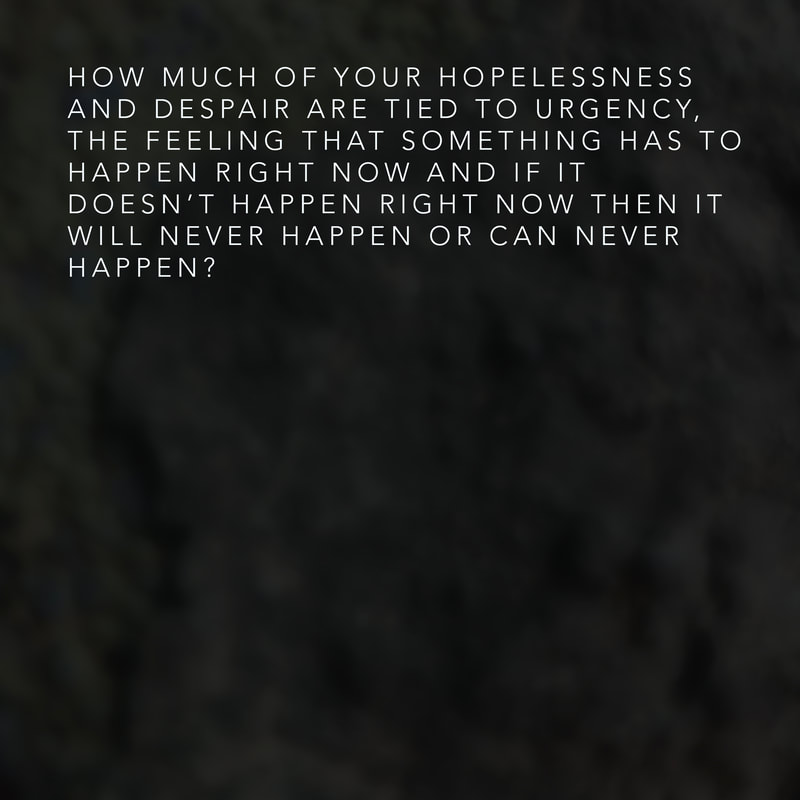
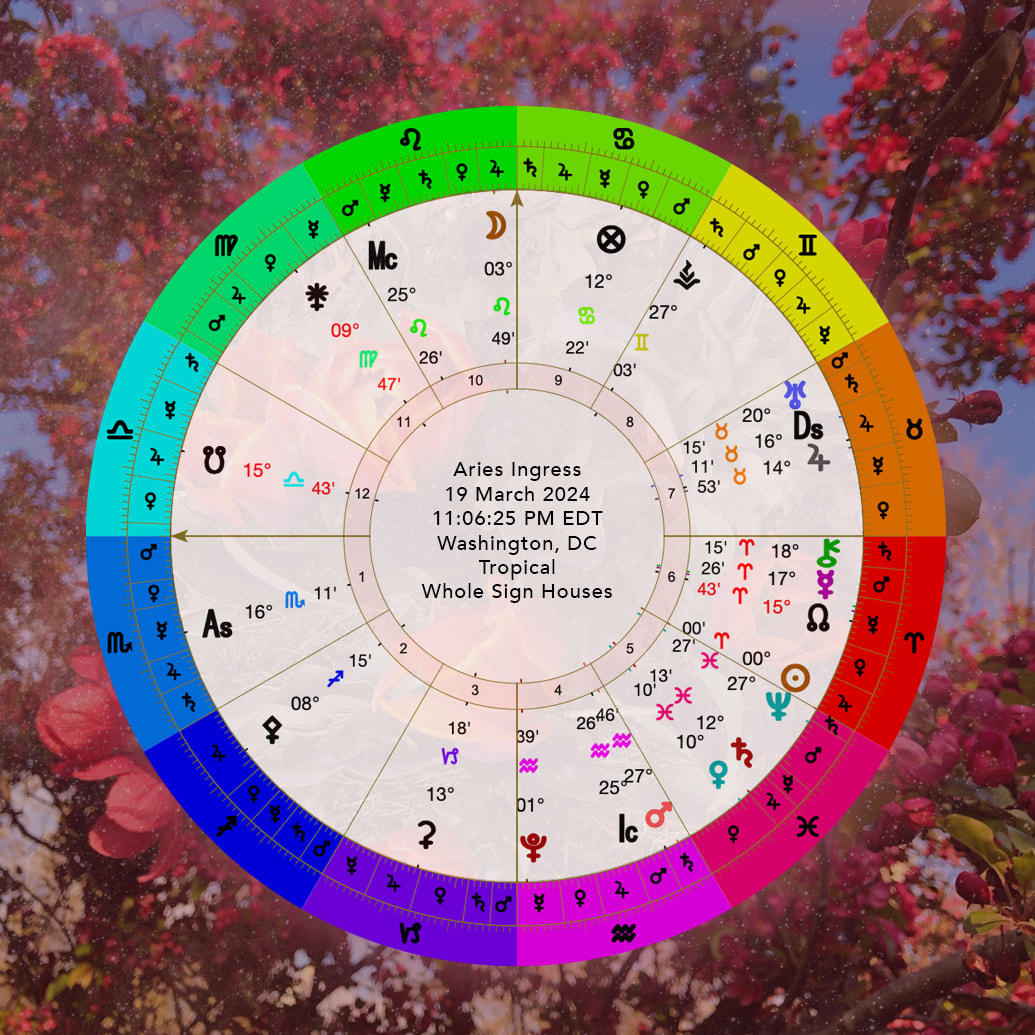
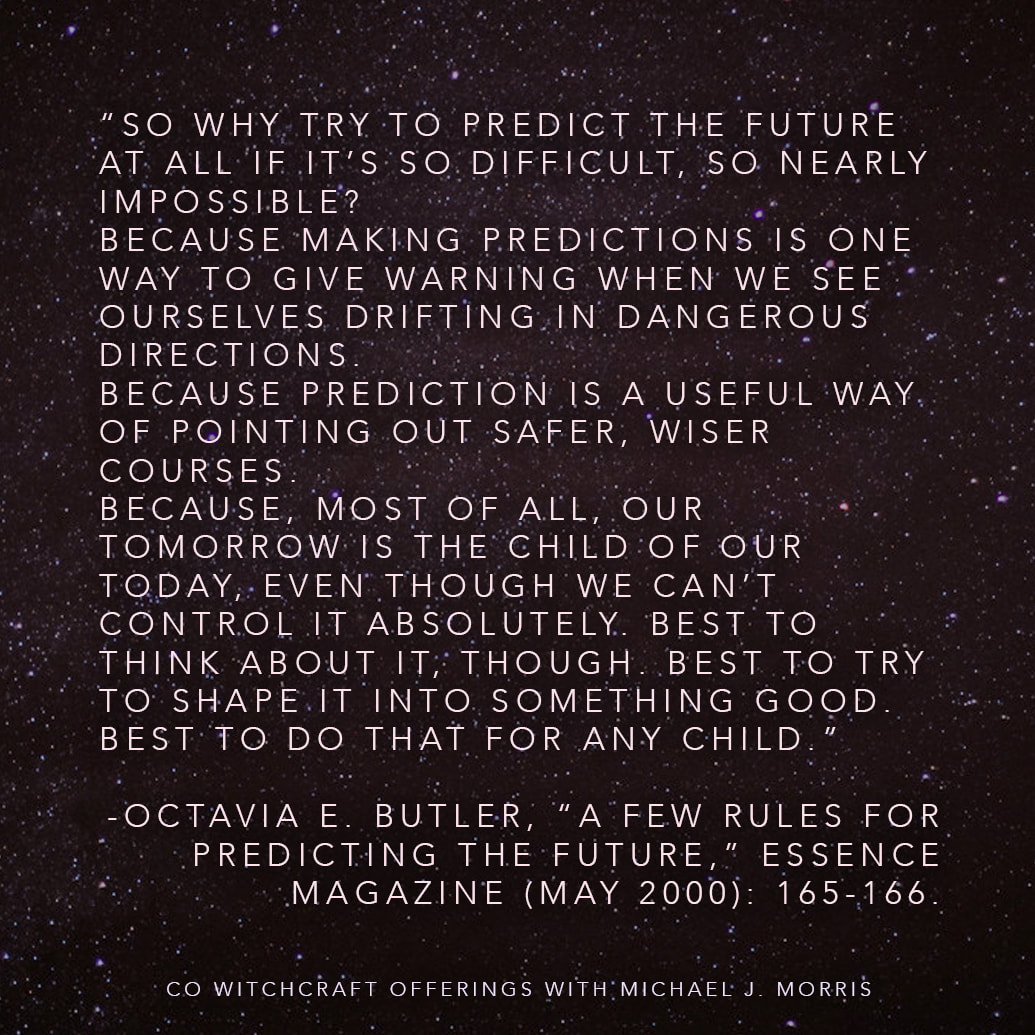
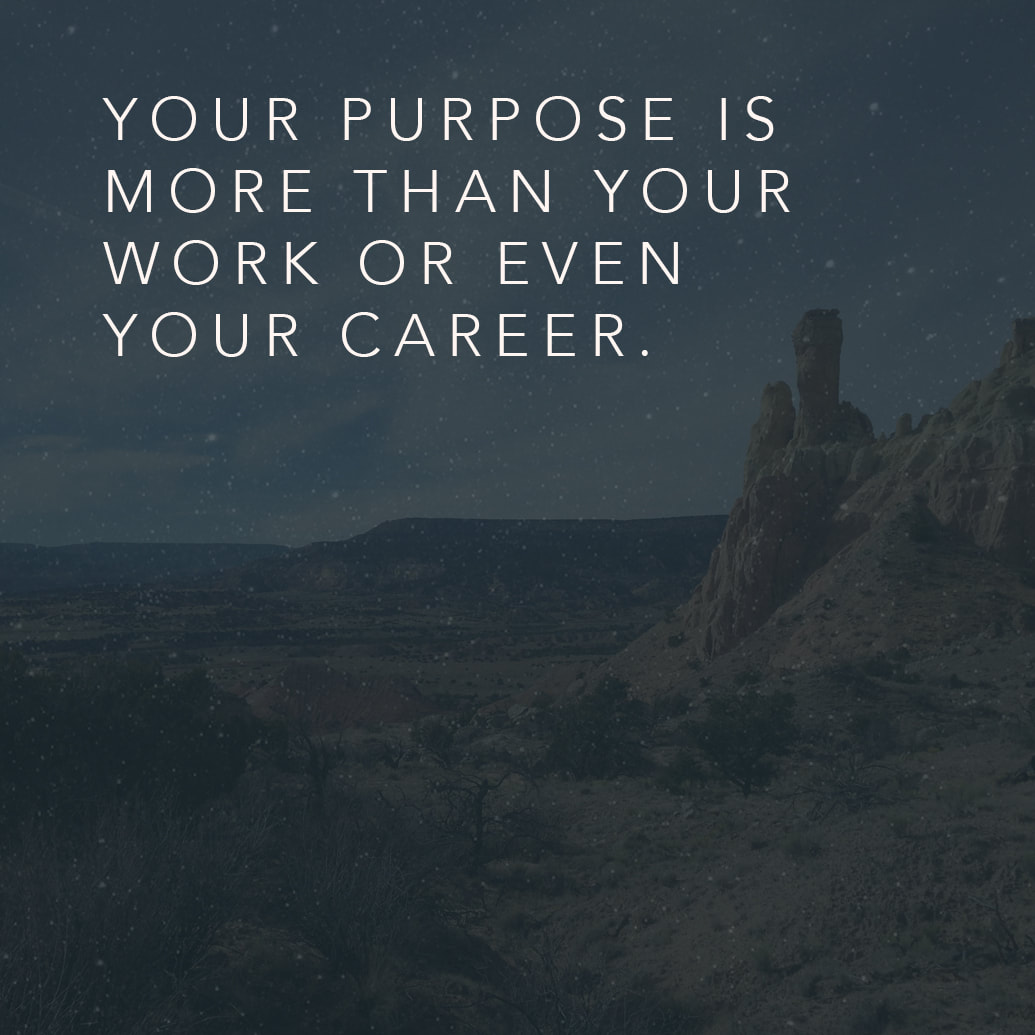
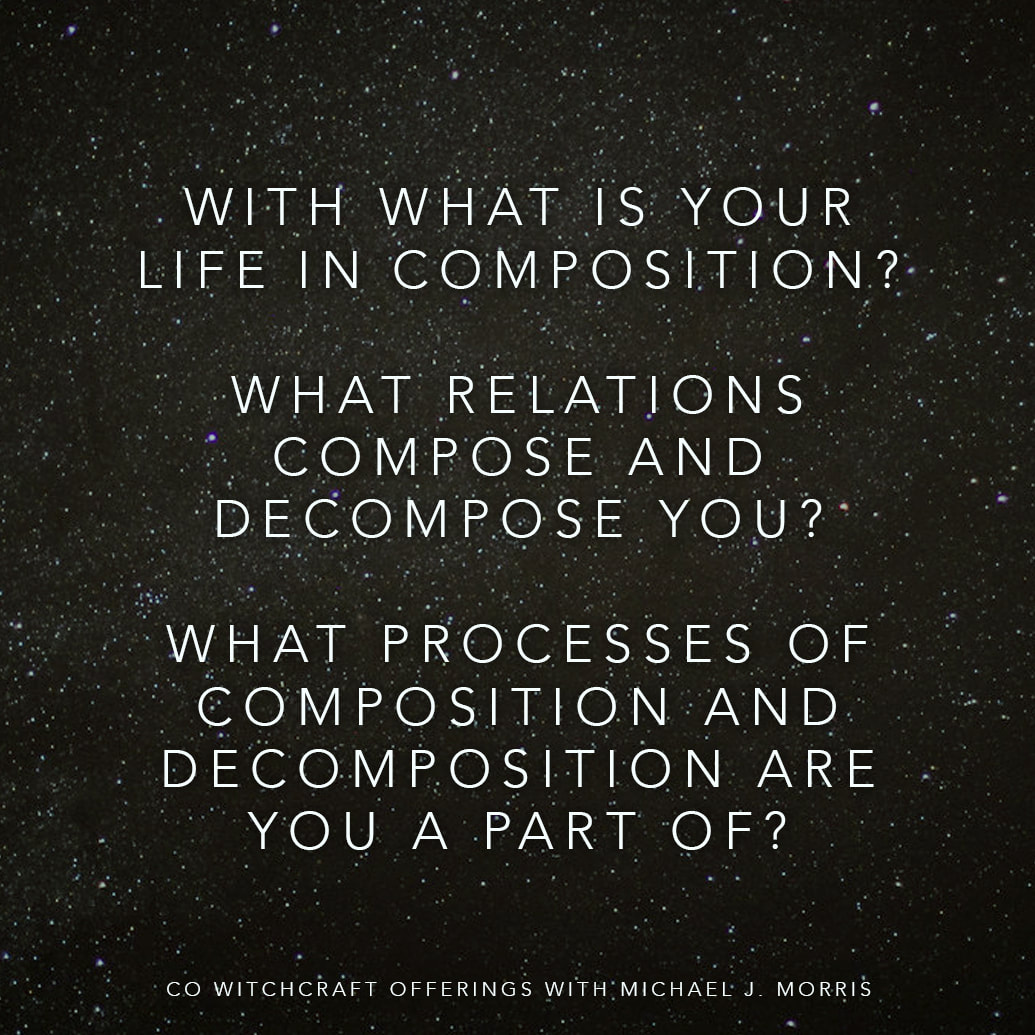
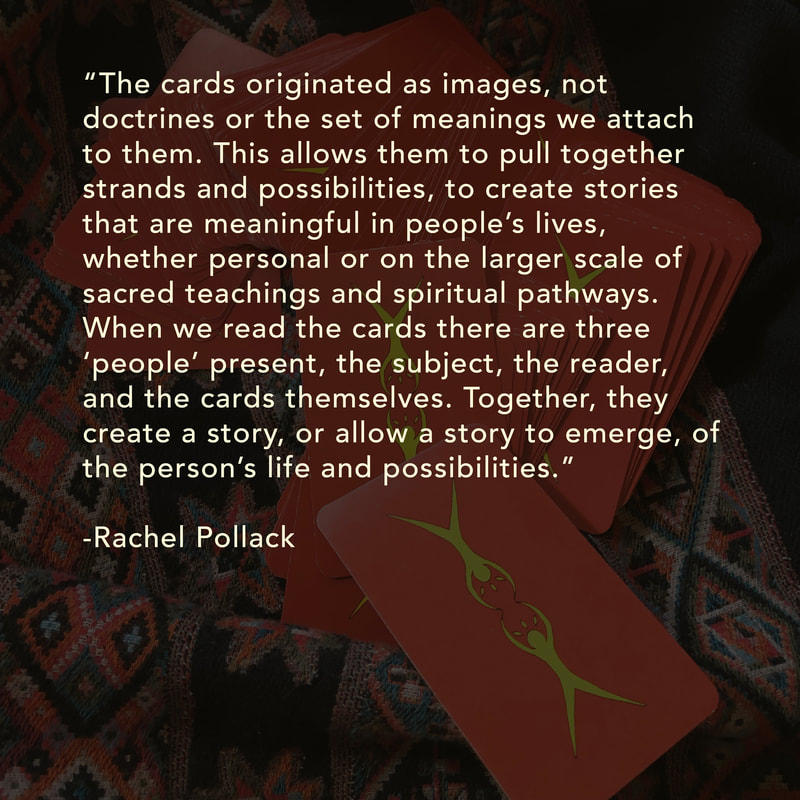
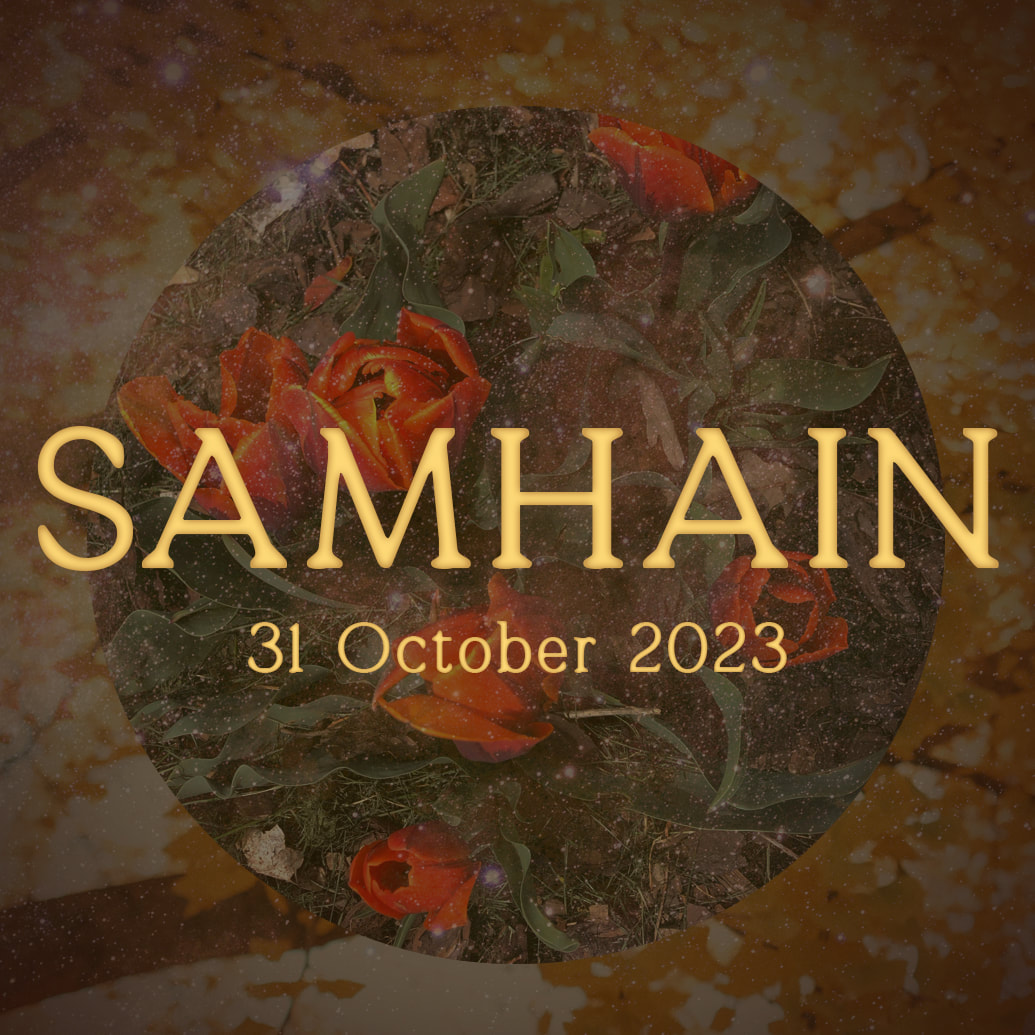
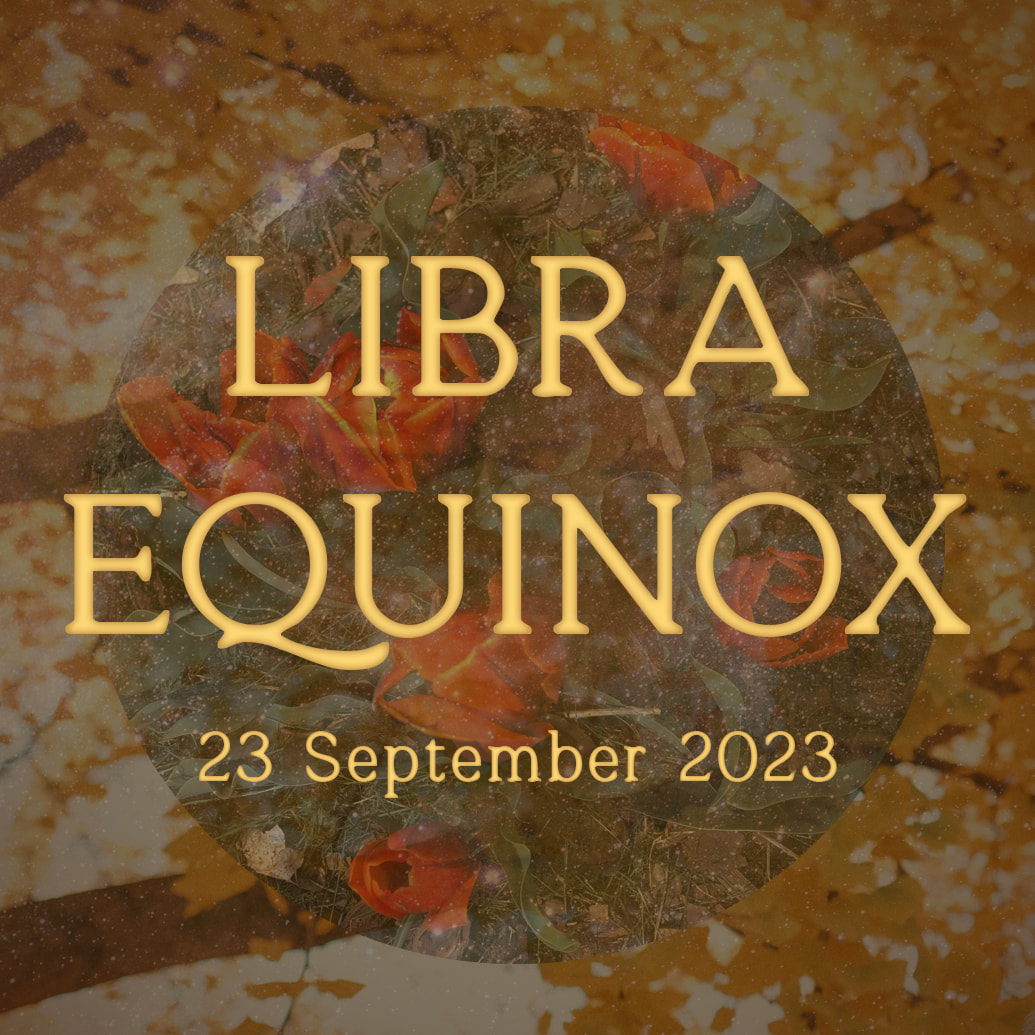
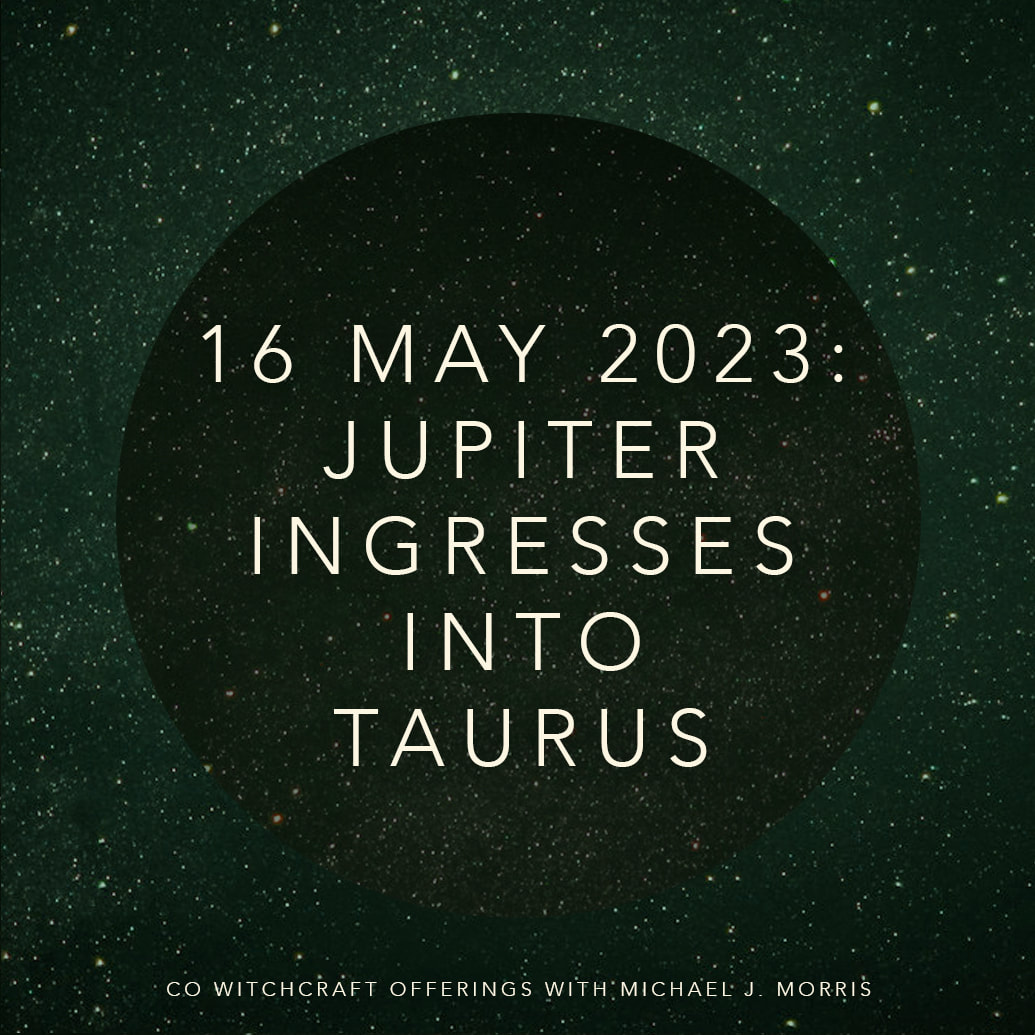
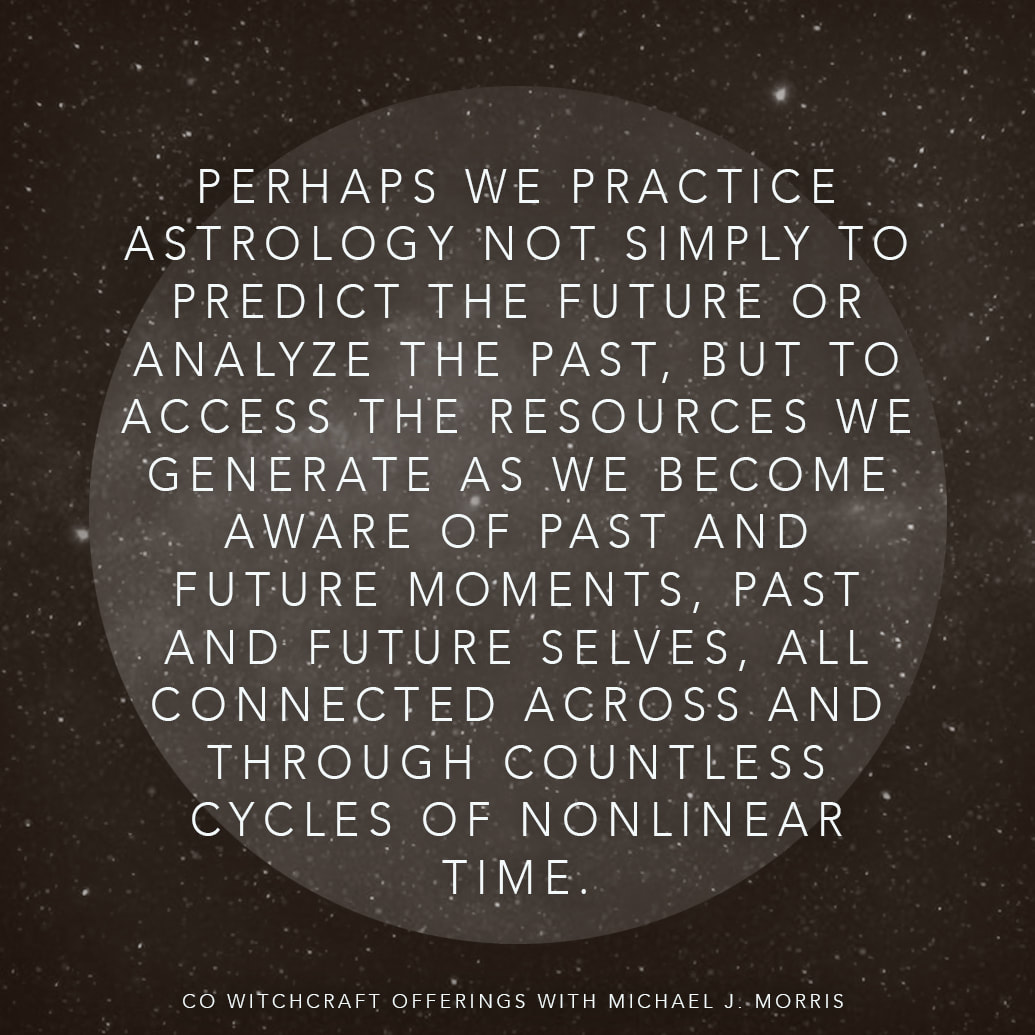
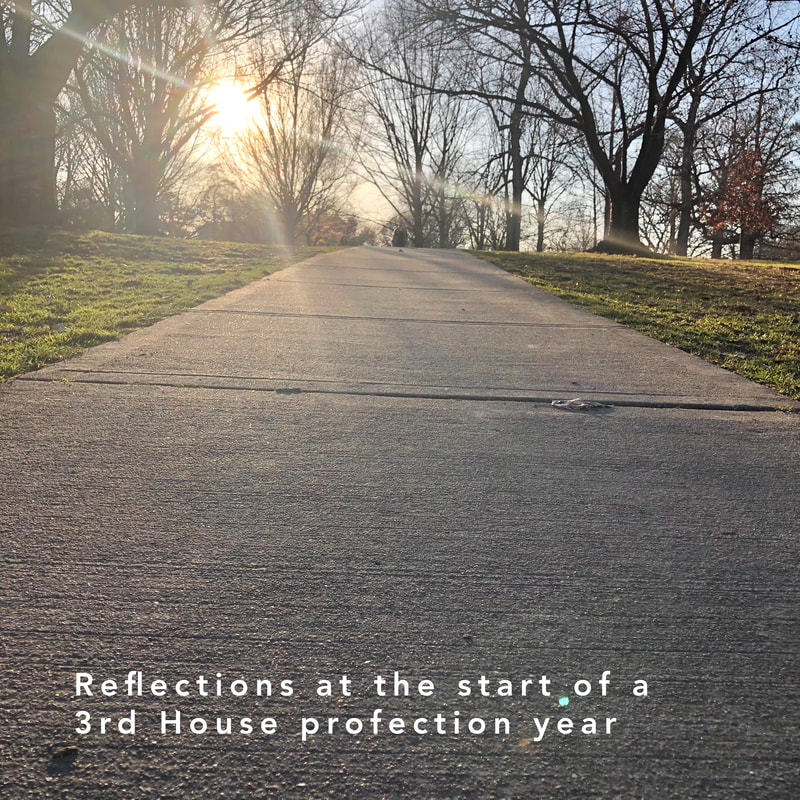
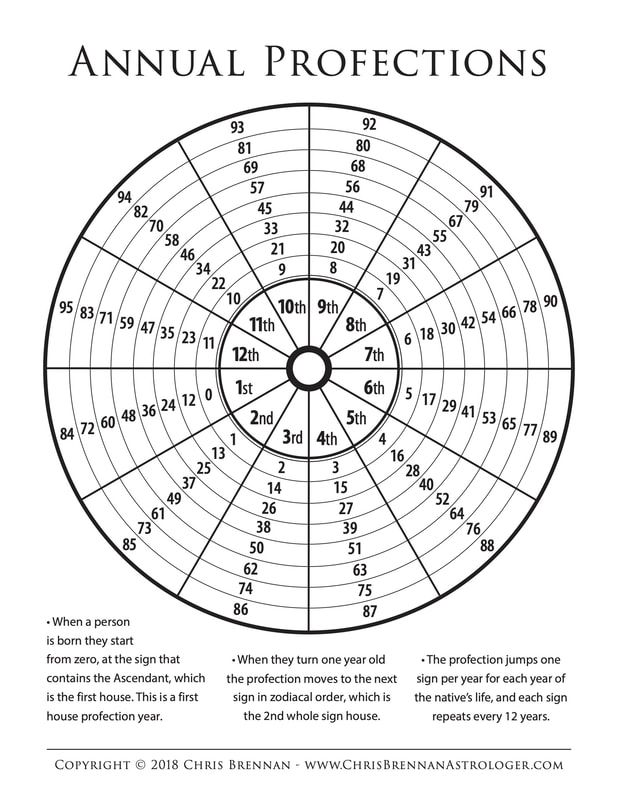
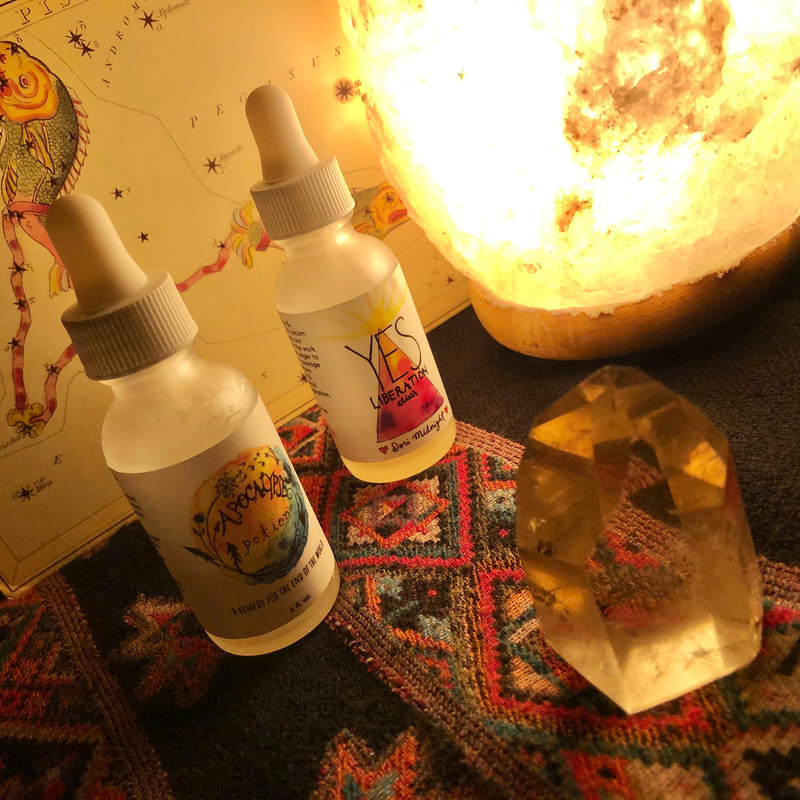
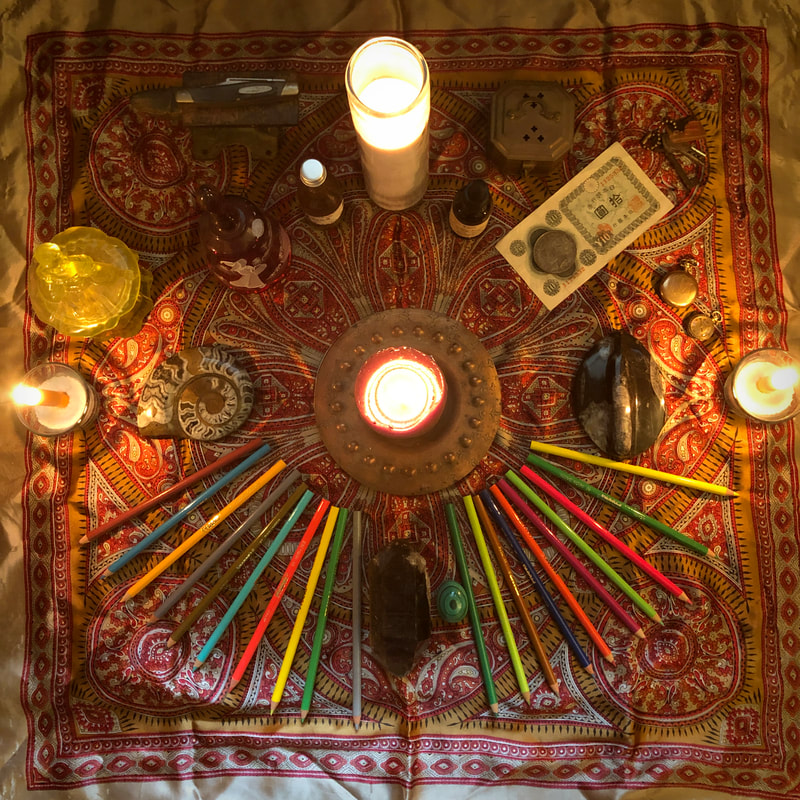
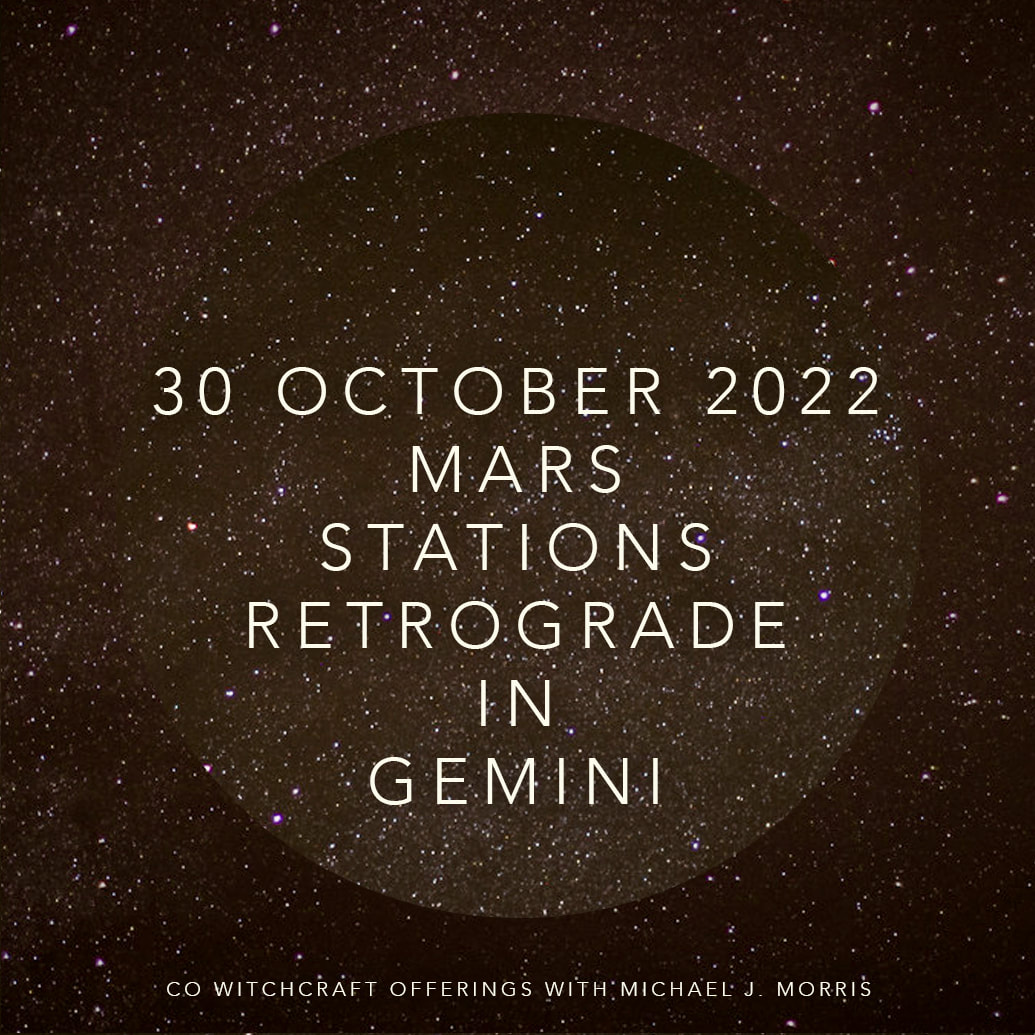
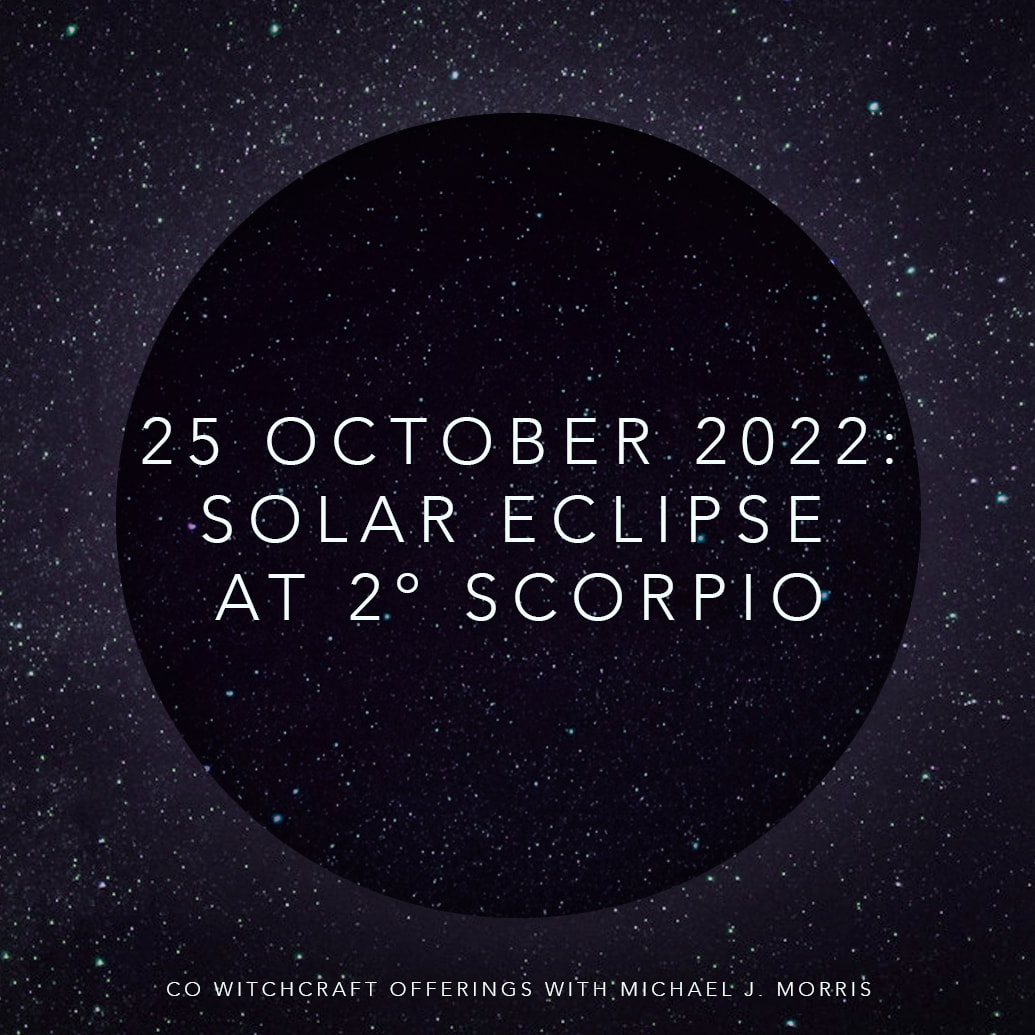
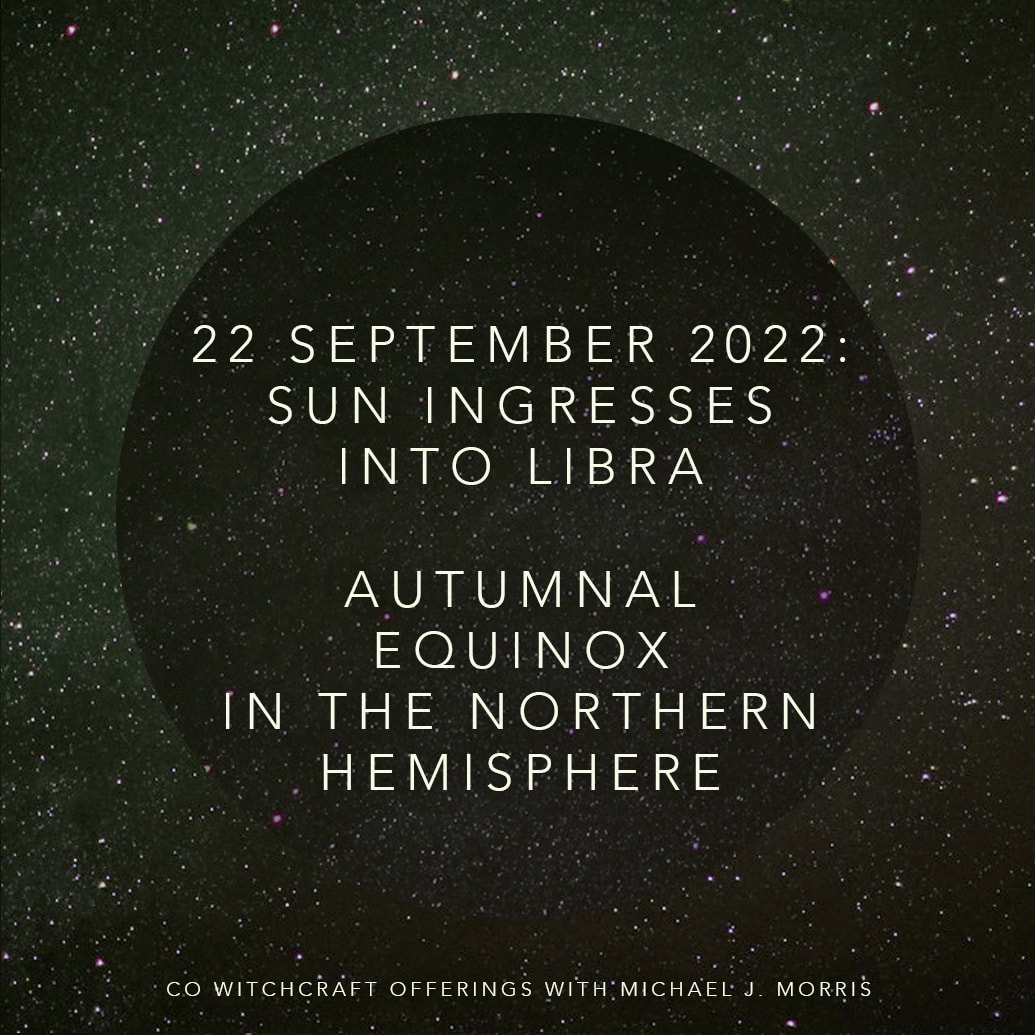
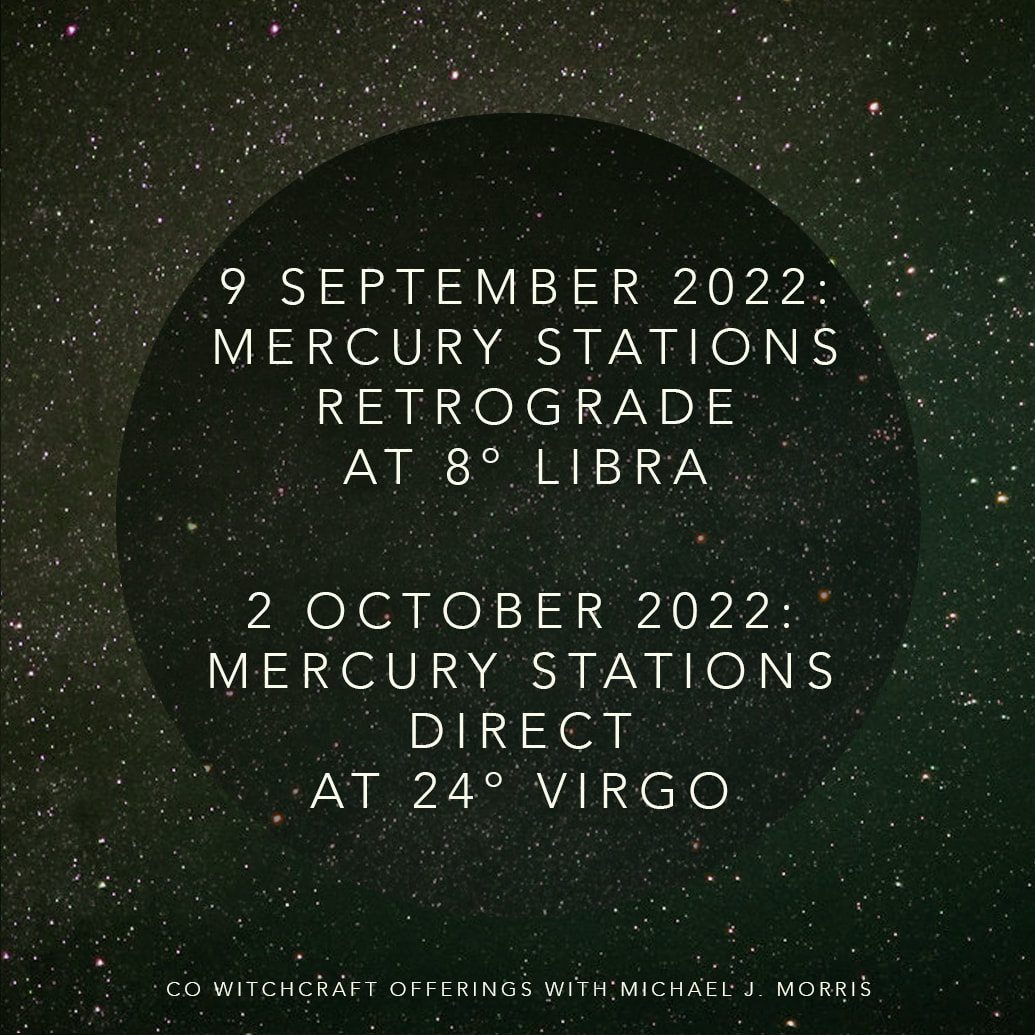
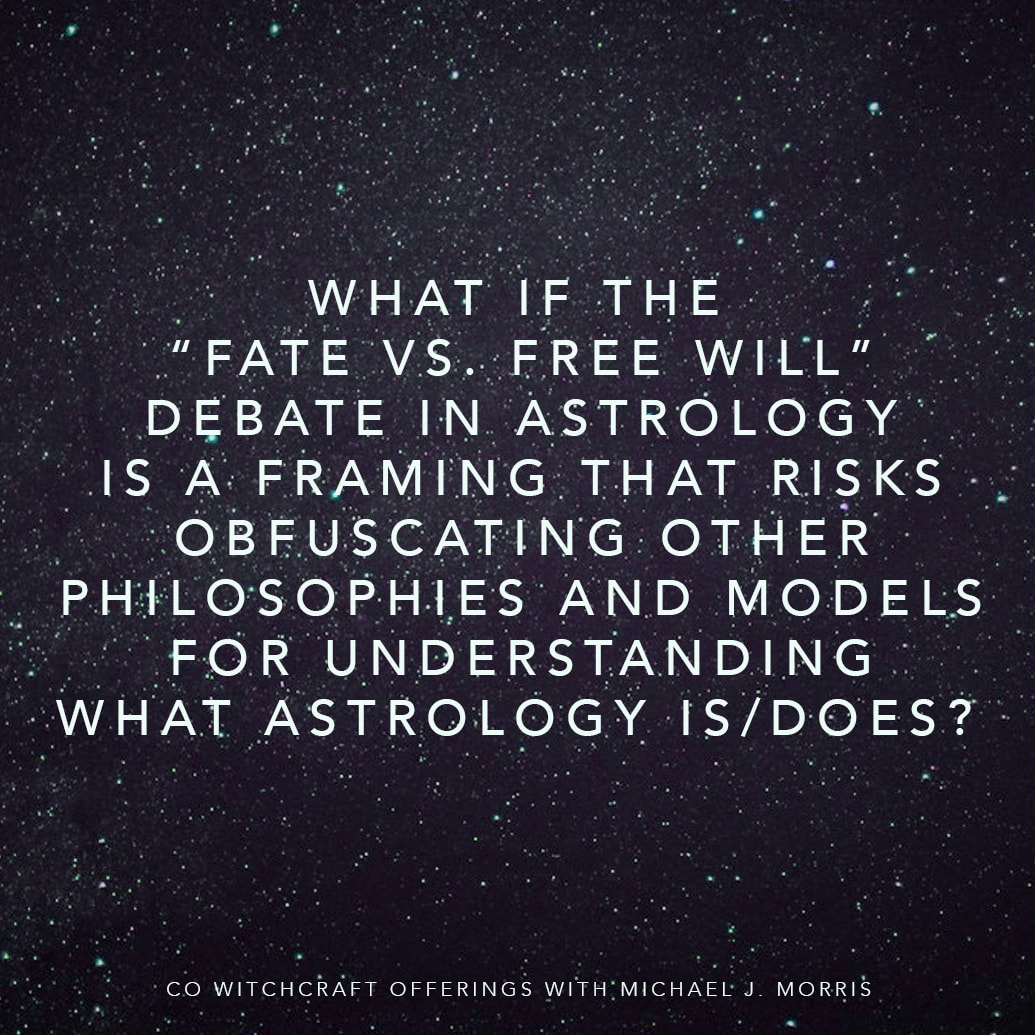
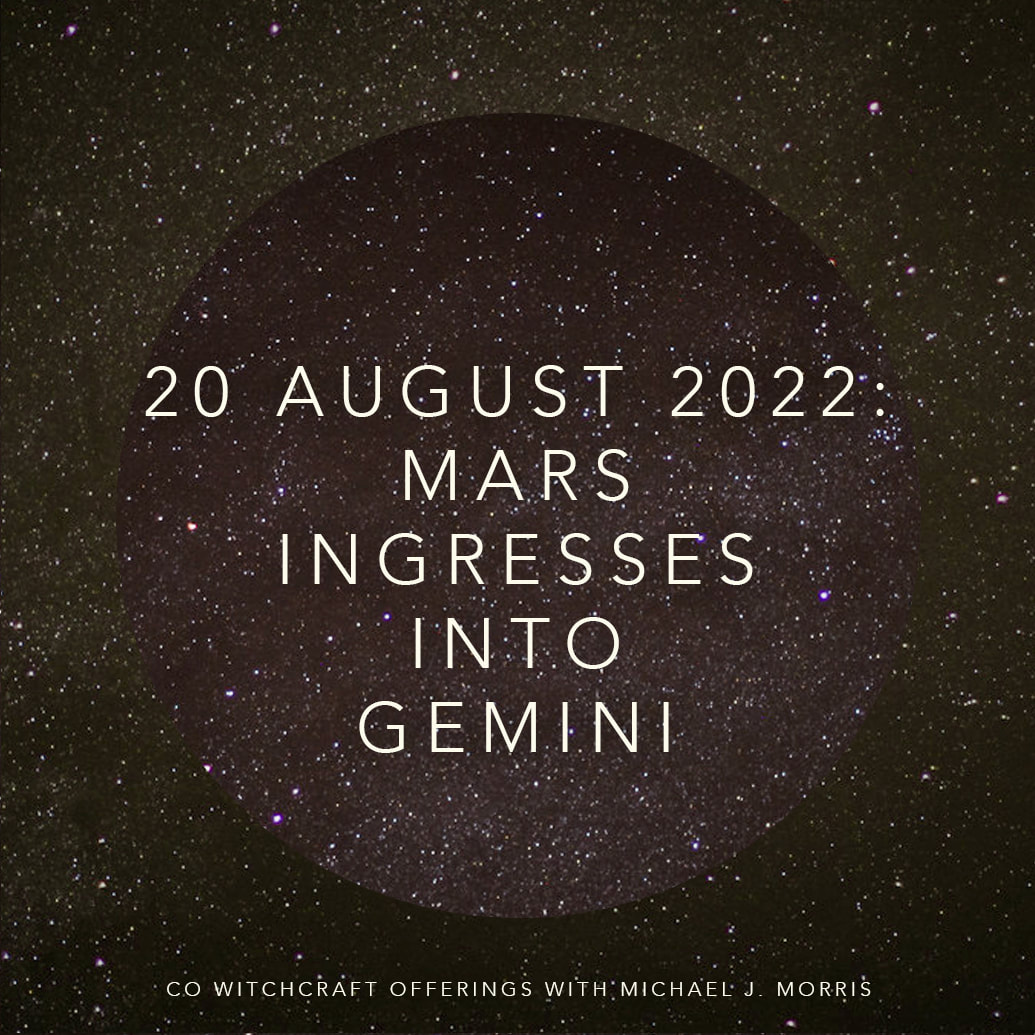
 RSS Feed
RSS Feed